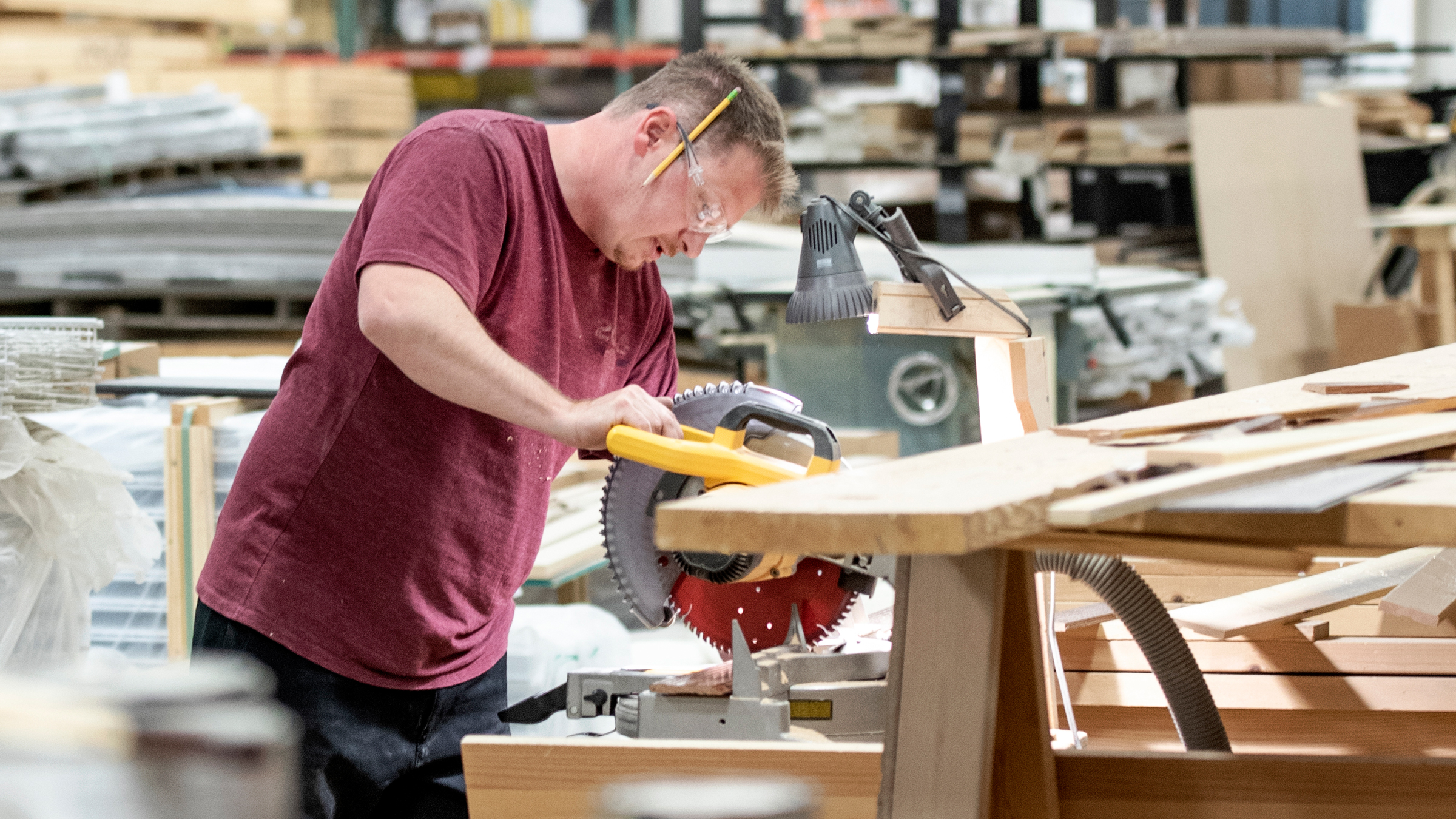More than 300 tribal leaders, policymakers, and practitioners registered to explore opportunities and barriers in Native federal contracting at the inaugural event in the Center for Indian Country Development’s (CICD’s) 2023 webinar series Cultivating Native Economies in the 21st Century. The virtual event on June 21 featured subject matter experts from national Native organizations and the federal government as well as representatives from Native enterprises that have grown their revenue by providing the federal government with goods and services.
The event paired recent CICD research on federal contracting’s expanding revenue role in Indian Country with Native entities’ frontline experiences. The research sheds light on business sectors and contracting programs that are important to Alaska Native Corporations (ANCs), Native Hawaiian Organizations (NHOs), and federally recognized tribes (hereafter collectively referred to as Native entities). Speakers shared stories of successful economic diversification through federal contracting, highlighted barriers and opportunities, and pointed to resources for getting started. Throughout the webinar, they reflected on the need for greater understanding of the contributions of Native entities—including the community benefits of their engagement in federal contracting.
The event was cohosted by the Federal Reserve Bank of San Francisco, the National Center for American Indian Enterprise Development (NCAIED), and the Native American Contractors Association (NACA).
Stories from the front lines
When the Exxon Valdez oil tanker spilled crude oil into Alaska’s Prince William Sound in 1989, local wildlife and economies suffered. One enterprise that felt the effects was Chugach, a community-owned ANC serving Southcentral Alaska that had investments in natural resource industries. In the years following the oil spill, Chugach filed for bankruptcy.
“We were able to climb out of bankruptcy because of federal contracting,” said Katherine Carlton, president and general manager of Chugach Education Services, Inc., and Chugach Training and Educational Solutions, LLC. Around the time of the oil spill, changes to the Alaska Native Claims Settlement Act and the U.S. Small Business Administration’s (SBA’s) 8(a) Business Development program—which provides training, technical assistance, and federal contracting preferences for socially and economically disadvantaged small businesses—expanded opportunities for ANCs to participate in federal contracting.
Today Chugach provides services for the U.S. government at locations across the country and around the globe. These include construction, IT systems and support, facility operations, and education and training. In keeping with ANCs’ purpose of promoting the social and economic development of Alaska Native people, Chugach reinvests net income from federal contracting into its communities. Along with its subsidiaries and nonprofit foundation, Chugach funds internships, apprenticeships, business assistance programs, artifact repatriation, a language and culture revitalization camp, and shareholder dividends, including for elders who often still practice a traditional way of life.
For Nakupuna Companies—a Honolulu-based enterprise that provides IT, facilities and infrastructure, logistics, environmental, and management services—federal contracting helps fulfill its mission as an NHO. Since 2015 Nakupuna has given over $9 million back to the community through educational and cultural programs, economic development activities, and employment and other supports funded by its foundation or offered in partnership with local nonprofit organizations, according to Director of Advocacy Michael “Keawe” Anderson.

“It’s kind of a wellness web that we try to build,” he said. “We try to holistically look at [community members] starting with the children—keiki—and moving all the way to the elders—kūpuna—and identifying opportunities to educate our community, provide them with jobs, provide them with opportunities, and then—more than that—integrate across cultural programs.”
For Bodwé Professional Services, a family of companies headquartered in Michigan, federal contracting fueled its growth as a start-up. Bodwé operates as the professional services group of Mno-Bmadsen, the non-gaming enterprise wholly owned by the Pokagon Band of Potawatomi in southwestern Michigan and northeastern Indiana. Since Mno-Bmadsen’s launch in 2012, Bodwé has grown from one company of four people to several companies with a total of approximately 150 employees. Contracting with the federal government accounts for about 90 percent of Bodwé’s business, according to President and Chief Operations Officer Jeremy Berg.
“We’re in an expansion phase,” Berg said. Bodwé provides contracting services for the U.S. Department of Defense (DOD), which leads the federal contracting market in overall expenditures, and over the past couple of years has deepened its contracting work with civilian agencies, including the U.S. Department of the Interior, U.S. Department of Health and Human Services, and National Park Service.
Seizing opportunity
Speakers described federal program changes that have opened opportunities for Native entities to participate in federal contracting. These include new goals for the share of federal contracts going to small disadvantaged businesses and an initiative to help businesses participating in the 8(a) program access more federal contracts. Businesses certified as 8(a) participants are eligible for federal contracting preferences as well as training and technical assistance. The new initiative provides 8(a) businesses with a designation indicating their eligibility for 8(a) sole-source awards (contracts given to a single supplier without competition) and competitive set-asides.
Revised regulations for the Buy Indian Act—a law authorizing the Bureau of Indian Affairs and Indian Health Service to set aside government contracting opportunities for qualified Native American vendors—have also opened opportunities for Native businesses. In another example, the U.S. Department of Energy in 2022 announced an initiative under the Energy Policy Act to increase use of a preference for purchasing energy products from Native entities. Lillian Sparks Robinson, interim director of NACA, spoke of opportunity for Native entities to more fully benefit from the Indian Incentive Program, which provides a rebate to prime contractors that subcontract with Native entities on DOD projects. Speakers also described greater potential to use the SBA’s HUBZone program, which provides set-aside contracts for businesses in areas designated as historically underutilized business zones.
“Now is a great time to be involved as an entrepreneur and contribute to your communities through government contracting,” said Jackson Brossy, assistant administrator of the SBA Office of Native American Affairs and a CICD Leadership Council member. Brossy also noted that in 2022 the SBA updated its tribal consultation policy in alignment with the federal government’s commitment to a government-to-government relationship with tribes.
Barriers, and resources for navigating them
For a Native entity interested in pursuing federal contracting, there can be “a pretty large learning curve,” said Chris James, president and CEO of NCAIED and a CICD Leadership Council member. This includes understanding how the 8(a) program and other government set-aside programs work, and the process for becoming certified as an 8(a) business. Barriers to accessing capital in Indian Country also pose a hurdle, said Sparks Robinson.
Brossy recommended that those interested in exploring federal contracting opportunities take advantage of the resources available through the SBA. For example, the SBA’s APEX Accelerators provide technical assistance to businesses interested in government contracting. Local SBA district offices and the nationwide network of Small Business Development Centers also offer small business resources, training, and counseling. Support is also available through SBA training and resource partners, Brossy said.
Other resources speakers highlighted included Native procurement centers, which provide expertise on provisions specific to Native businesses, and Women’s Business Centers. James also encouraged those interested in exploring federal contracting to take advantage of the wealth of information available online. Sparks Robinson, who is also a small business owner, advised talking with other entrepreneurs about how they entered federal contracting.
A pie big enough for all
Throughout the webinar, speakers emphasized that there’s room for all Native entities interested in exploring federal contracting. “There’s enough for all of our communities to be successful in this particular industry,” Sparks Robinson said.
Rather than competing with each other, individually owned and entity-owned 8(a) companies pursue different types of contracts, she said. “I think the story of the partnership that happens between individually owned 8(a) companies and entity-owned 8(a) companies really needs to be told more often. We don’t see how our entity-owned companies are really lifting up our individual entrepreneurs. That happens way more than it’s being told.”
Carlton of Chugach agreed: “There’s a large space in government contracting. We don’t have to fight among one another. We should be working together because there’s strength in unity, and we all benefit from that mutual success.”
James also spoke of a need to combat “this misconception that a Native American entity-owned business takes away from another minority business.” He observed that “there are plenty of contracts out there,” and that Native-entity profits from those contracts go back into economic development that serves all.
Sparks Robinson agreed, adding that Native federal contracting helps grow the pie by creating jobs and contributing to the tax bases of Native and non-Native communities alike. Previous CICD research supports that there are benefits for non-Native communities, finding that most federal contracting revenue Native entities earn is for activities performed off tribal lands.
Cultivating Native Economies in the 21st Century
The June 21 federal contracting webinar marked the first in CICD’s 2023 webinar series, which aims to provide tribal leaders, policymakers, and practitioners with information they can use to strengthen and expand Indian Country economic development. The series continued July 11 with a conversation about the latest research on the unique lending practices of Native CDFIs (Native Community Development Financial Institutions). Future events in the series will explore tribal broadband and new data tools available to support economic development in Native communities.
As speakers in our federal contracting webinar made clear, the issues and entities involved in cultivating the economic futures of Native communities are all connected. In Carlton’s words, “The story is very similar between tribes, NHOs, and ANCs. Our purposes are the same: preserving our cultural identities and our heritage, and promoting the social and economic development of our people. And how we do this is through generating revenue.”








